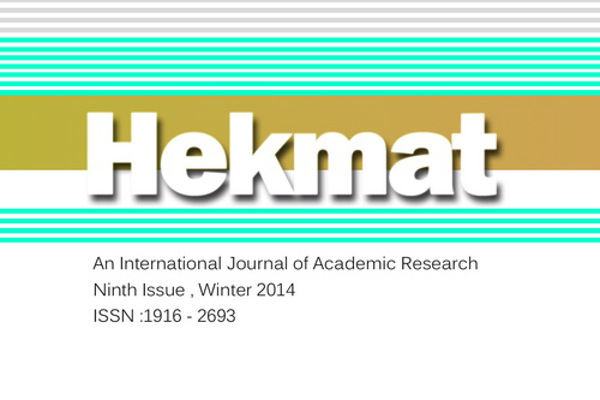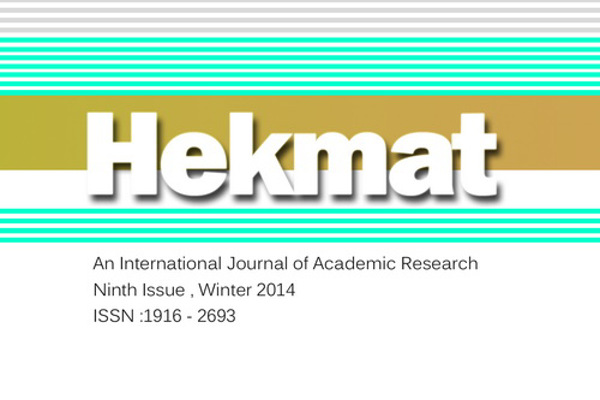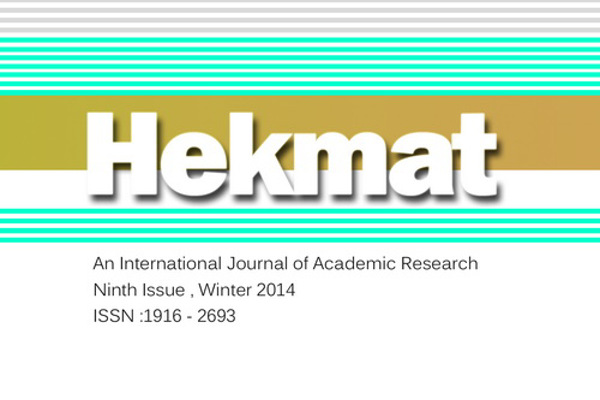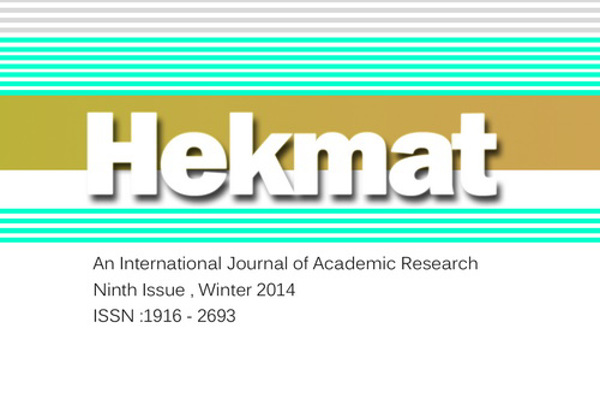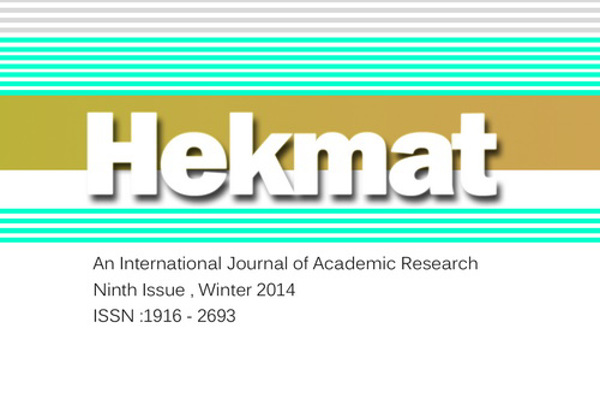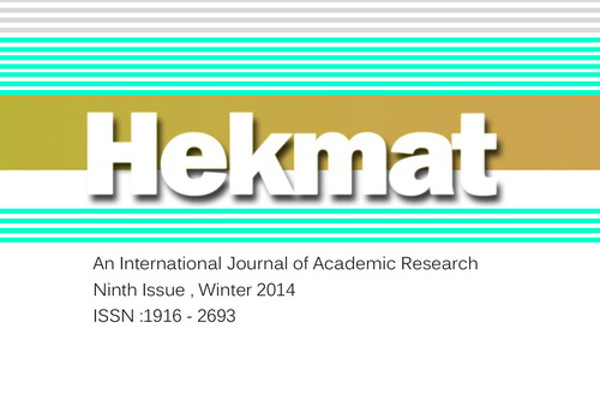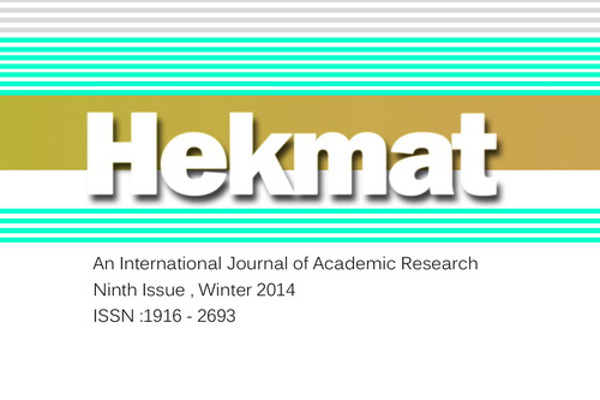Tax, Zakat, and Their Relation / By: Sajad Chubineh
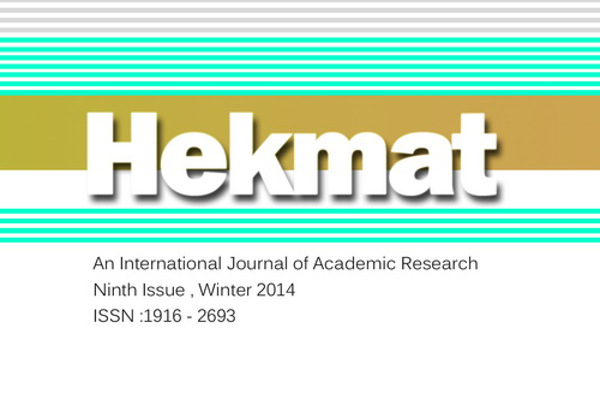
Conceptual Clarifications
1. Zakat
Among the obligatory religious duties Islam has much emphasized is zakat. It is a form of religious service and has a significant financial facet too. The Quran pays great attention to zakat. In fact, it mentions it next to salat almost everywhere. This shows the high status of zakat in Sharia. The grand religious authority Sheikh Najafi, the author of the book Jawahir, writes, “Then it must be known that zakat is the sister of Salat and the Almighty God has mentioned them together in His Divine Book, the Quran, implying that if one refrains from paying Zakat, one’s performing Salat will also be null and void”[1]. The holy Prophet and His immaculate successors have spoken about zakat in a way indicating its vital role and tried to encourage believers to see it as an indispensable religious obligation. The holy Prophet (be peace upon Him and His Progeny) says, “The most generous person is the one who discharges the financial obligations which the Almighty God has charged him with”[2]. Imam Sadiq (be peace upon Him) says, “Paying Zakat is paying one’s debt and causes wealth to flourish”[3]. Zakat is a fixed divine obligation and an immutable financial religious service which may be discharged only if the believers pay it with the intention to obey the divine command. If one fails to have that intention when paying his zakat, his duty remains binding.
Zakat brings about different constructive fruits. It stems from the principle of social balance. The Quran states that “…so that wealth does not remain confined to the rich alone”[4]. This principle aims to establish social justice and foster fairness in human relations. It is the basis of so many Sharia laws in the economic field. Based on this principle, the Almighty God has ordained that the needy receive a particular share of the wealth the rich possess, which they ought to pay them according to the pattern Sharia describes. In a saying attributed to the Almighty God, it is said, “Wealth belongs to me, the poor are my family, and the rich are my agents. If my agents are miserly, I shall make them taste my punishment and shall not care for them”. The main purpose of zakat is to combat poverty and deprivation, and to immunize society against need and economic gulf.
Zakat consists in paying a particular percentage of the wealth one possesses when it amounts to a certain level called Nisab as tax to be spent on predetermined expenditures. If this divine command is curried out fully, the expected adjustment in financial capability individuals enjoy is realized. Many problems society may suffer from morally and spiritually as the result of huge economic gulf between classes will be cured as well. Zakat payers have the chance of exercising moral and spiritual virtues through voluntary assistance they render to their fellow citizens. The receivers of zakat too gain an opportunity to experience moral elevation since they touch humanitarian intentions of their fellow rich citizens who extend their hand of friendship to them. What matters more in this process is the fact that payment of zakat is voluntary, done of free will, and with divine intention. The holy intention and the pillars on which it stands require religious education by the preachers responsible for the faith.
2. Tax
We use the term “tax” in this paper in the sense defined in modern economics rather than the lexical meaning that has a wider scope including payments religiously due such as Zakat. In economics, tax is discussed under the general topic of finance. Among different definitions proposed for “tax”, I.M.F’s definition is adopted in the international manual for budget classification. The definition runs as follows: “the amount of money collected by the government for public expenditures which is not refundable and compensated for”[5]. According to this definition, the three characteristic features of tax include:
- being collected in cash;
- being mandatory and not refundable;
- being spent for public purposes.
Accordingly, every individual is a payer and receiver at the same time. Citizens are payers of tax in their private personal capacity. They are receivers of tax in their communal collective capacity. They receive the tax in the form of public services, materials, or otherwise rendered by the government. It goes without saying that the state represents citizens in collecting and spending tax. This is one of the exclusive functions of the state in society next to law enforcement. As the responsibility for the general direction of the process of production and distribution in society cannot be divided and distributed among individuals, since no individual may be preferred to any other one, it is the state that must undertake this task for them all. The Islamic state has to carry out this responsibility on the basis of justice, fairness, reason, and Sharia.
Bearing in mind the important role of taxation in enabling the government to do its job and in the general administration of social life, it is of paramount importance that the policies, procedures, and regulations pertinent to taxation be planned in minute details and in an appropriate way. This opens windows to so many different topics we cannot elaborate on here. One topic we would rather discuss here is the relationship between taxation and payments religiously due in general and Zakat in particular. This topic is worthy of elaboration here because, under an Islamic state, Muslim citizens and the government enjoy reciprocal responsibilities defined in Sharia law. It is important to focus on these responsibilities so for as they relate to economic issues.
Are we justified in saying that Zakat and tax are identical?
This question is perhaps the most important question this paper must answer. It constitutes a hot current debate in Muslim societies among Muslim thinkers and jurists. To answer this question, we need to reflect again on the definitions of tax and Zakat, their constituents and differences. Doing this helps us understand why and how current views are held.
Some authors believe that tax is the same as Zakat. They focus on two fundamental features they both share manifesting conceptual similarity and identical utility. On the one hand, both tax and Zakat are money collected from people for especial expenditures. On the other hand, paying tax and Zakat is mandatory. Moreover, voluntary payment of the latter and the compulsory collection of the former bring about no difference so for as the ultimate purpose is concerned.
We disagree with this position, however, since it involves too much simplification of the issue. Despite some remarkable features common to both tax and Zakat and a number of aspects in which they coincide in conceptual definition as well as the actual function some of which we shall enumerate later, it is not correct to consider them identical.
Differences between Tax and Zakat
- Paying Zakat is a religious service. It shall be considered properly-performed and duly accepted by the Almighty God only if the performer retains the intention to gain proximity to God through his performance. Tax payment, on the other hand, is a duty dischargeable under whatever circumstances.
- Tax is payable in cash only while Zakat can be paid otherwise.
- Tax is payable on demand. Governments impose taxes and collect them. Before imposition of tax and without the government agents demanding citizens to pay them, tax is not payable. Zakat,however, should be paid by every adult religiously charged with the obligation even if no one demands him to do so.
- Since taxation aims at meeting public needs, taxes may be spent in so many different ways for varieties of purposes. But, in the case of Zakat, both the amount to be collected and the way it is to be spent are exactly defined and unchangeable.
- Taxpayers always consider themselves as creditors. They pay a percentage of their money to the government in return for the services it has to render. Consequently, their payment is a type of indirect investment in security and comfort for their own living conditions. But Zakat payers do not invest. They shall not consider the amount of money they pay as their possession. Rather, they think it belongs to those individuals who receive it.
- The motivation for paying Zakat is for more sublime than that of paying tax. Consequently, Zakat payers experience a special spiritual elevation and joy taxpayer’s lack.
- The spirit of Zakat and its main objective are to combat poverty and help promote economic stability and equilibrium in society. Taxation is not foundationally so motivated. As the result of interpretational justifications or instances of mismanagement, taxes may expand in ways benefiting only taxpayers.
- Zakat is among the permanent, fixed, and first-order obligations in Islamic Sharia. Taxation is classified in the category of second-order obligations contingent upon circumstances.
- In the case of Zakat, the primary intention of the legislature is that people volunteer for paying with the intention to experience spiritual elevation through discharging this religious task. But in the case of tax, the primary intention of the legislature is to enable the state to collect hence the elements of compulsion. It is worthwhile to note here that under certain circumstances the primary intention of the legislature may be overrun by more important considerations. These circumstances, of course, would be exceptional by nature.
Similarities between Tax and Zakat
- The concepts of tax and Zakat share an important element; they aim at checking the over accumulation of wealth privately owned on the expense of economically lower class society. The obligation to pay tax and Zakat implies the debt every individual has to society.
- Both tax and Zakat pursue the general interests of people in society though each one does so in a particular manner. These general interests are so important that rational people shall not permit their negligence.
- Under certain circumstances, Islamic state is allowed to collect Zakat by force. In that case, Zakat resembles tax.
- One of the nine described expenditures of Zakat is called “in the path of God”. This is so widely and loosely defined that it can include every public service for which taxes are expendable.
From the above explanation, we can conclude that tax and Zakat are not interchangeable. There are elements common between them but they still differ from one another. Zakat is an institution in Islamic Sharia fixed and permanent belonging to first-order obligations. It existed in previous religions as well. Taxation, on the other hand, is an institution belonging to second-order obligations of Sharia. It is left to the state to decide about. This is why it cannot be replaced with tax.
It is also worthwhile to mention that if the taxes legislated by Islam are properly collected and spent, Islamic state will not need to impose further taxes. It can run the government by the financial resources the fixed forms of religious taxation can provide. Consequently, Islamic state must first take the necessary measures to raise money through the mechanisms described in Sharia including Zakat, Khoms, Kharaj, and Jezyah. If necessary, it can meet its needs by imposing federal taxes on the basis of second-order obligations of Sharia.
Contemporary Jurists’ Views
Since the question of tax is one of the newly emerged problems and belongs to financial regulations of the modern age, discussions about it date back to the recent decades. A number of jurisprudents have expressed their opinions about this question. We shall mention some of them here. In his book Wilayat al Faqih, Imam Khomeini the founder of the Islamic Republic of Iran, expounding his theory of Islamic state says, "From the legislations in Islamic Sharia concerning religious tax and budgeting, we can gather that these legislations aim at far greater an end than providing financial resources for the needy people. It is obvious that these legislations concern the establishment of state trying to provide financial resources needed to run the government. Should an Islamic state be established, it must be administered by these financial resources including Khoms, Zakat, Jezyah, and Kharaj. It is the duty of the officials of Islamic state to impose similar taxes proportionate to the needs of the state and interests of society. The state must collect these taxes and spend them for the welfare of Muslims[6]." In a meeting with the Minister of Finance of the Islamic Republic of Iran, he reiterates," If we someday become capable of relying on Islamic taxes which is already a huge amount alone in running the state, then, there would be no need to impose further taxes[7]."These statements show that he believed before and after the establishment of the Islamic Republic of Iran, that Islamic state must primarily rely on the fixed taxes prescribed in Sharia law. It also shows that he ceaselessly strived to revive the traditional form of religiously oriented Islamic taxation system. Resort to further taxes is permitted only in case they become indispensable.
A similar view is expressed by the great Muslim thinker, Motahari, who believed that the Muslim ruler is authorized to legislate necessary taxes in addition to the fixed Islamic ones according to the requirements of the government under certain circumstances. He writes, "The debate is open as to whether the Islamic state is authorized to impose any other form of tax rather than Zakat. The Islamic ruler is authorized to impose Zakat of other forms of property under special circumstances. There are nine items described in Sharia law as kinds of property the owners of which must pay Zakat on. It is within the authority of the Islamic ruler to add further items to this list when necessary[8].
In his book Islamic Economics, the late Shahid Beheshti writes, "Based on general principles in the science of Usul pertinent to Wilayat al Faqih and the administration of society, the head of Islamic state is authorized to impose necessary taxes in order to provide for some needs and to enable the government to undertake its responsibilities[9].
These jurisprudential opinions illustrate that Zakat is a first-order Sharia law concerning how to finance public expenditures. Further taxes will be legitimate if the Muslim ruler deems them necessary. As precedence for the aforementioned jurisprudential opinions, we may note a letter the late Sheikh Jafar Kashif al Ghita wrote to the Ghajar King, Fat'h Ali Shah, during Russia-Iran war[10]. In this letter, he authorizes the King to impose new taxes in special situations: “I issue permission to collect as much as needed for meeting the expenses of war and providing necessary resources for suppressing the infidel aggressors from the income of the religious taxes imposed on estates in conquered territories and the like including Zakat on gold, silver, wheat, barley, dates, raisin, camel, caw, and sheep. If the income raised in this way does not suffice and no other method is available to finance the war against the cruel enemy, then, he is allowed to collect money from people living in the vicinity of borders in order to defend them. If sufficient resources for the war are not provided in this way, then, I permit him to collect as much money from people living in other remote regions as is necessary[11]."
Are religiously due payments sufficient for the necessary needs of the state?
Our answer to this question is positive. In standard circumstances, a state can be run with the money raised through payments religiously due. In Islamic economics, religious tax is not confined in Zakat. Other income sources for the state including Khoms, Kharaj, Jezyah, and the like are available that can constitute government budget. The money collected in this way is enough to meet normal needs of the state.
In our discussion of Zakat, we said that the religious obligation to pay a percentage of the gold and silver one processes applies to the cash one owns in any currency as well as all the deposits and investments. In this way, needs of contemporary states in budget can all be met. So, taxation can be done within the framework of the sharia law of Zakat.
Any economic theory and method of establishment of justice in any respect would be null and void if unimplemented. Therefore, it is important to make arrangements for the implementation of the rules pertinent to economy. This can be done if the three following conditions are met:
- Creation of the cultural grounds in society suitable for the implementation of regulations concerning taxation and tax collection. Citizens should be educated to feel obliged and willing to discharge their duty with the intention to please God. They should realize that paying tax contributes to the betterment of their life and love of society both in this world and in the hereafter. Clarification of the process of raising the income and spending the budget by the government is one suitable contribution to the creation of the said cultural grounds.
- Supervision by the state over economic transactions and their registration as well as detailed information of the government about the property of individuals especially the wealthy is necessary. Electronic equipments make it easy nowadays.
- Relative flexibility in tax collection and tough supervision over its administration and expenditure.
Conclusion
The spirit of Zakat and its general direction aim at the establishment of economic equilibrium and adjustment of wealth compilation in society as a means to the fortification of social justice and the establishment of a fair order which is one of the fundamental purposes of the revelation of Holy Scriptures and appointment of prophets by God. Taxation will be legitimate provided that it serves these purposes. Consequently, taxation and tax collection by tyrannical regimes cannot be legitimate hence the requirement that, as the religiously authorized ruler, Wali al Faqih needs to endorse any legislation or order pertinent to taxation.
We can gather from the Koran verses and religious traditions about Zakat that it is looked at more as an income source based on cooperation rather than on transaction. By contrast, modern economists see tax in the framework of a transaction between investors and taxpayers and governments as tax collectors. It goes without saying that there is a big difference between transaction and cooperation as for as the agents’ intentions are concerned. While cooperation is a behavior deeply rooted in human conscience stemming from the purified divine human nature, transaction is motivated in general by self-interest. The former is tantamount to the spiritual perfection of human individuals. The latter merely helps sustain the material life of individuals and society. The question now remains how far these two facets can be reconciled.
[1]. Jawahir al Kalam, Vol.15, P.16.
[2]. Wasael Al Shia, the Second Chapter: "what Zakat must be paid on", Hadith 2-7.
[3]. Ibid.
[4]. The Quran, Sura Hashr, Verse 7.
[5]. Majless w Pajuhesh journal, vol.11, number 45, autumn 1383.
[6]. Imam Khomeini, Wilayat Faqih, p.22.
[7]. Sahifeh Nur, vol.7, p.171.
[8]. Islam and the requirements of time, vol.2, p.21.
[9]. Islamic economy, p.107.
[10]. Fiqh Ahl Beyt journal, vol.1, number three p.217.
[11]. Ibid.


